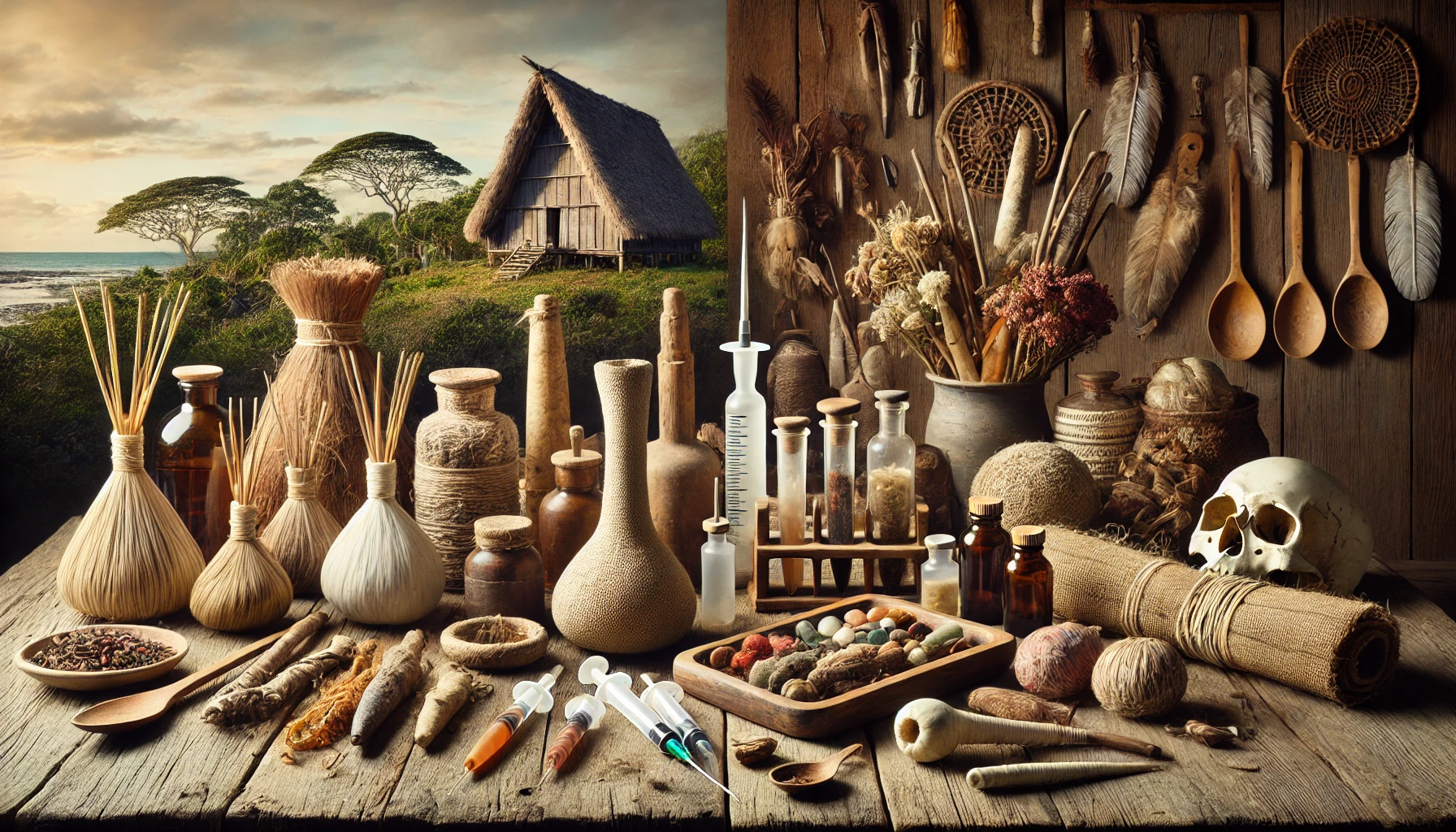The Overlooked Origins of Modern Medicine
As the world recovers from various global health crises, advancements in medicine continue to shape our well-being and healthcare systems. Yet, the profound influence of Native American practices on the development of modern medicine often remains unnoticed. For centuries, Indigenous cultures have held a deep respect for nature, using medicinal plants and holistic practices as essential components of healing.
The Deep Connection to Nature
Indigenous communities have long recognized the sacred relationship between the land and healing. Dr. John C. Burnett, an associate professor of microbiology and immunology at the Miller School of Medicine and a member of the Muscogee Nation, highlights how deeply rooted these natural approaches are within his culture. “In our tribe, medicines are considered sacred and should only be shared with fellow citizens—sometimes exclusively with those from the same tribal towns or clans,” Burnett explains. This reverence for nature is encapsulated in a saying from a Muscogee ecologist: “Land is medicine,” reflecting a common belief among Native peoples, especially those who have lived in close connection with their ancestral lands.
Medicinal Plants: The Foundation of Healing
The natural world has always been a cornerstone for many medical advancements. Medicinal plants, known for their therapeutic properties, have been used worldwide for generations. According to Frontiers in Pharmacology, over 80% of people globally incorporate medicinal plants into their primary healthcare, and approximately 40% of pharmaceutical drugs in Western medicine derive from these plants.
One notable example is salicin, a compound originally obtained from willow bark. Indigenous people traditionally chewed willow bark to relieve pain, a practice that has evolved into the development of modern medications like aspirin. Similarly, the Iroquois tribe’s early development of a baby formula made from corn, water, and nuts has informed contemporary approaches to infant nutrition.
Innovations in Medical Tools and Practices
Native American ingenuity is evident in the creation of various medical tools still used today. The syringe, an indispensable tool in modern medicine, was first invented by Native Americans using hollow bird bones and animal bladders to administer natural remedies. This innovative spirit extends beyond tools to holistic approaches to health, emphasizing the balance between body, mind, and spirit. Many Native healing traditions focus on achieving harmony within oneself and the community, promoting mental and spiritual health alongside physical well-being.
The Power of Community in Healing
Indigenous healing practices often emphasize the importance of community and social connections. Dr. Raymond I. Orr, a professor of political science and co-director of the Native American and Global Indigenous Studies Program, underscores this focus on collective healing. “A body of compelling research shows that meaningful and regular social ties are protective factors against many widespread maladies and early death,” Orr notes. This communal approach contrasts sharply with the isolation often seen in Western medical practices, suggesting that healing is not just a personal journey but a shared experience.
The Underappreciated Contributions to Modern Medicine
Despite the significant contributions of Native peoples to modern medicine, their role is frequently overlooked. Dr. Orr points out that Native peoples are rarely recognized for their impact on contemporary healthcare. This lack of acknowledgment is further compounded by systemic issues within the U.S. healthcare system, where Native communities often face neglect and inadequate resources. The federal government’s “trust responsibility,” a commitment to support Native populations, remains largely unfulfilled, particularly in health care.
Health Disparities and Their Historical Roots
Recent data highlights stark disparities in health outcomes for Native American communities. A 2022 report from the National Center for Health Statistics revealed that American Indian and Alaska Native people have a life expectancy over ten years shorter than the national average. High rates of alcohol-induced deaths and rising suicide rates from 1999 to 2017 further illustrate the ongoing struggles faced by these communities. These challenges are deeply rooted in the historical loss of land and community ties due to colonization, which disrupted traditional lifestyles and contributed to various social and health issues.
Barriers to Access and the Need for Change
Access to healthcare remains a significant barrier for many Native communities. Underfunded health clinics and limited proximity to medical facilities on reservations force many Native Americans to move to urban areas to seek care. Dr. Burnett highlights the need to address these issues by increasing the number of Native students in the biosciences and healthcare fields. “The only way to reach Native communities is to improve the numbers of Native students in the biosciences and healthcare,” Burnett emphasizes.
A Strong Response Amidst Adversity
Despite facing numerous challenges, Native communities have demonstrated resilience, particularly during the COVID-19 pandemic. Their strong sense of community enabled a swift response to the virus, with many tribal clinics distributing vaccines efficiently and effectively. Burnett recalls, “My parents were able to get the vaccine at a Muscogee Tribal clinic before they could have elsewhere in Oklahoma, simply because the tribes acted quickly.”
A Path Forward for Native Healthcare
Efforts to improve healthcare for Native Americans are gaining momentum, with national advocacy and initiatives from the Biden-Harris Administration aimed at providing better resources to these communities. While progress has been made, much work remains to be done to ensure that Native peoples can reclaim their rightful place in the medical field and have access to the care and resources they deserve. By acknowledging and honoring their contributions, we can work towards a more inclusive and equitable healthcare system for all.
